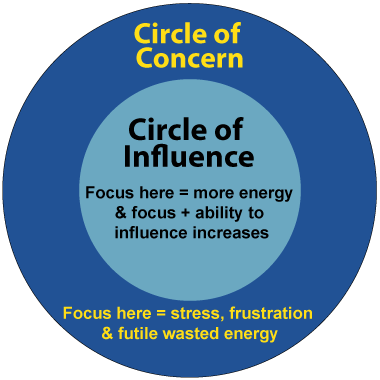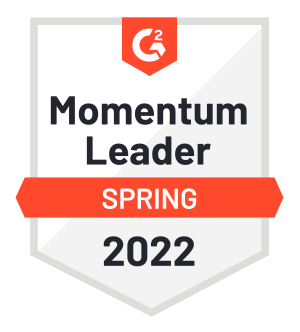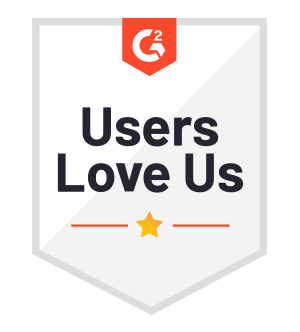7 Habits I Try to Keep
Every now and then in my work as an engineering manager I get stumped. I may be stuck in an intense debate with a co-worker where both of us are frustrated and unable to reach a decision. Or I am buried in a heap of engineering projects that grows larger and more fearsome with each day that passes. In either case, I hit a wall. I begin to complain about the situation and am quick to blame someone else for my difficulties.
After some thought, I know this is not really where the problem lies. I reach for the book that in the past has given me some direction and clarity. Stephen Covey’s widely-read book “Seven Habits of Highly Effective People” explains that lasting change and workable “win-win” solutions to every-day conflicts will not come about with “quick fixes.” Meaningful results come about when people or organizations are willing to base their decisions and goals on core values such as fairness, excellence and service. Objectives that are based on these core principles yield results that have far-reaching implications in terms of both a company’s and individual’s overall productivity, viability and success.
This book is so remarkable that I wanted to talk about it and share what I have learned.
Habit #1
Learning to Take Charge
Being proactive is a surprisingly simple way to effect change. All too many people (myself included) find it easier to shift responsibility for a problem or procrastinate.
Covey says that this is what reactive people do. Reactive people view themselves as victims of their environments and don’t realize they have the power to change a situation. People can’t change everything, but they can affect what goes on in a defined area known as the “circle of influence,” as opposed to the conditions within a “circle of concern” which is not within their control.
People with a “can-do” spirit look inward, accept responsibility, and act accordingly. Proactive people have high expectations for themselves and are resourceful and driven by values, rather than feelings. They keep promises, show courage and initiative when necessary, and develop that inner strength of character that keeps the momentum moving forward.
Habit #2
Visualizing the End Product
Covey says that all of our interactions with people and our environment are shaped by deeply held values. By basing our interactions on certain universal and fundamental truths such as fairness, honesty, integrity, quality, service, and excellence, we establish a framework for how we live. These guiding principles form our “mission statement” and direct us as we take on our roles as employees, co-workers, executives, friends and partners. This applies to a company as well as an individual.
Once the company or person has adopted and internalized these guiding principles, behavior and attitudes adjust to match them. Everything flows from this framework or set of goals and shapes interactions with customers, colleagues and loved ones. Leadership comes first and management comes second. In many cases, a company may need to completely redesign its mission statement. A company solely driven by profit at the expense of other areas, for example, may need to improve the quality of the worker’s environment, provide excellent service, as well as direct more resources to the community.
Habit #3
Make the Vision Happen
Our vision is a framework for action. This third habit tells us to actually make things happen that are consistent with this framework. This may involve doing things we are not excited about, but being disciplined to follow through with our goals in mind. This sets apart those that succeed from those that don’t.
This habit requires us to figure out what is really important, rather than merely urgent. The urgent events that come up daily are essentially distractions (e.g., email) that take us away from accomplishing the tasks that matter and will help us realize our long-term vision and goals. This habit helps us carry out the items that are most consistent with our “program” for life.
Covey points out that if we have difficulty carrying out our priorities, it is because we haven’t fully internalized them in our hearts and minds. To really live a principle-based life, we shouldn’t prioritize what is on our schedule (which is the strategy of a reactive person), but schedule our priorities (a proactive plan of action). As an engineer buried under a growing pile of various projects, I may determine that certain tasks can be delegated or are not as “urgent” as I think they are. I may train a coworker to take responsibility for parts of these projects. Work where I can best utilize my productivity as an engineer should take precedence.
Habit #4
Setting Win/Win as the End Goal
Most of life’s situations involve working with other people. In most cases, we interact daily with clients, colleagues, with members of our family, and a whole host of other individuals. But, usually one party or another tends to lose as the other party comes out ahead during these interactions. Covey points out that a culture of competition often prevails. He points out that we should strive to achieve a result where both parties win. And if no one is satisfied, then no deal is acceptable.
As we interact with others, we should try to develop a collaborative solution. This requires a significant shift in how we typically approach conflict. If we focus on a solution where everyone wins, then the emphasis is on the results and less on the process or the methods employed. Once people identify performance objectives, they are free to police themselves in an effort to arrive at the best possible results.
Habit #5
Understand, then be Understood
How many times have you been in a conversation where the other person seems distracted or in a hurry to move on? I have been there too many times. To really make a connection, Covey says we need to listen with the goal of understanding.
You need to understand the other individual’s point of view and where he stands from an emotional and intellectual perspective. Approaching the conversation in this manner helps to connect with the other person and identifies hidden problems and issues. The other person is given the respect that we all inherently need. Try to see the world as the other individual sees it. When both parties truly listen to the others’ concerns, a better outcome generally results for both.
Habit #6
Develop a Teamwork Solution
Once you have taken the time to truly understand the other’s point of view and you commit to finding a solution that works for everyone, Covey suggests that the end result can be beneficial for everyone. In this scenario the differences between parties are valued and give the dialogue its energy. This process is not based on a framework where one loses and the other gains. In this situation, creative forces are unleashed and all are open to new possibilities; the end result can be better than what each party individually could have developed on their own.
For example, using Covey’s suggestions, I can now see how I could have handled a problem with a colleague. My first mistake was that I didn’t really listen to his point of view. Eager only to refute his statements, I didn’t bother to really understand his position. After reconnecting with him on this issue, I learned that his position originated from knowledge he had that I was completely ignorant of. Only after I truly understood his reasoning were we able to listen to each other and have a really productive discussion about next steps.
Habit #7
Sharpening the Saw through Daily Renewal
Covey’s habits are only as effective as you allow them to be. The seventh habit focuses on maintaining balance in all aspects of an individual’s life or organization’s culture. This translates to taking time to focus and develop four key areas:
- Physical
- Social
- Mental
- Spiritual
In the context of a company, the “physical” refers to the economic condition of the company; the “social” element refers to how employees are treated; the “mental” part relates to how well the company develops talent (e.g., continued engineering education); and the “spiritual” portion refers to the organization’s integrity and overall purpose. Is it solely motivated by the bottom line or does it also strive to contribute to the local community? Keeping all of these elements active and in balance allows a company to grow as an organization.
Conclusion
Incorporating these 7 principals into our professional and personal life helps builds a foundation that leads to more fulfilling and productive relationships in the workplace and in one’s daily life. Be clear with your expectations to others. Be honest, respectful and show high integrity. People will detect strength of character and will trust you. This in turn establishes the groundwork that allows you to work with any situation, even problematic ones. In fact, we should view problems that crop up with clients and co-workers as opportunities to solidify and build relationships.
Also Read: 5 Proven Principles Can Improve Your Professional & Personal





















